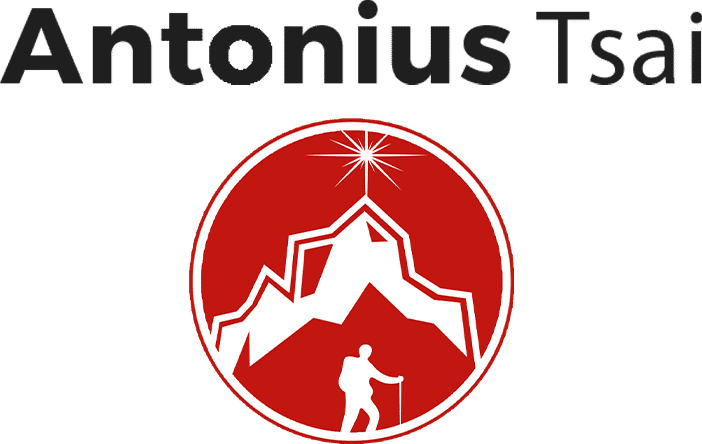What They Don’t Teach U
Being in the real world, you realize that there were many things missing from all those years of formal education. For example, you probably never had a class on how to deal with difficult people. You now wish that you could learn that other set of skills that your formal education omitted.
This program is for adult learners who want to continue to learn and develop themselves. This program (What They Didn’t Teach You In School) is meant to complement your formal education. This content, along with your technical education, seeks to provide a complete education experience for the development of the adult learner.
For education program directors, the program can help introduce content to your learners that they otherwise would have difficulty accessing. To customize a program, please select the TOPICS, FORMAT, and COHORT SIZE from the choices below. Contact information is at the end of this document.
TOPICS: Select 1 to 5 topics from the choices below:
What they don’t teach U about… Managing Your Career
- Managing the early career
- Managing the mid career
- Managing the late career
- Managing the career transitions
- Writing a resume or CV
- Uncovering your life narrative
- Crafting a personal brand
- Developing an elevator pitch
- Networking towards opportunities
- How to interview
- Negotiating job offers
- Getting promoted
- Balancing work with other priorities
- Leaving a role
- Other ______________________
What they don’t teach U about… Managing Yourself
- Managing your time
- Managing your presence and focus
- Managing your productivity
- How to set goals
- Setting proper work-life boundaries
- Navigating middle age
- Building wealth
- Maintaining health
- Becoming a lifelong learner
- Developing expertise in field
- Developing habits and routines
- How to be a good student
- Life as a young adult
- Developing a budget
- Managing thoughts and emotions
- Becoming an elder
- Developing hobbies and interests
- The role of faith and spirituality
- Letting things go
- Other ______________________
What they don’t teach U about… Knowing Yourself
- Understanding your values
- Making important decisions
- Becoming resilient in the face of challenge
- Handling setbacks gracefully
- Finding joy and meaning in your life
- Contributing from your strengths
- Developing greater self-awareness
- Being authentic
- Other ______________________
What they don’t teach U about… Cultivating Relationships
- Why relationships = success
- Building social capital
- Professional networking
- Mentor, Coach, Advisor, and Sponsor
- Engaging mentors
- How to mentor someone
- How to coach someone
- How to manage your boss
- How to develop collaboration
- How to negotiate for what you want
- How influence works
- Developing influence
- Being ethically political
- How to create community
- How to build trust
- How to give feedback
- How to take criticism
- Finding your authentic voice
- How to do public speaking
- How to write effectively
- Other ______________________
What they don’t teach U about… Creating Purpose
- How to develop your mission statement
- Finding your life’s purpose
- Answering your calling
- Making a deep contribution
- How vision works
- Manifesting your vision
- Harnessing your passion
- Creating a better future
- Other ______________________
What they don’t teach U about… Leading Others
- What is leadership?
- Leadership and management
- What is your leadership style?
- Leading from where you are
- Overcoming resistance
- Understanding the process of change
- Setting organizational direction
- Building teamwork
- Other ______________________
What they don’t teach U about… Life and Philosophy
- Why philosophy matters
- Living a good life
- Cultivating a growth mindset
- How to practice reflection
- Connecting to something greater
- Evolution of human consciousness

FORMAT: Select the preferred format from the choices below.
- In-person (or online) lecture (1 hour per topic)
- In-person retreat (1, 2, 3, days)
- In-person (or online) seminar (1 to 3 hours per topic)
- Online learning (asynchronous)
COHORT SIZE: Indicate the size of the cohort from the choices below
- Small group (3 to 10 learners)
- Large group (26 to 100 learners)
- Medium group (11 to 25 learners)
- Online learning (100+ learners)
- tony.tsai@hsc.utah.edu for inquiries for the University of Utah
- tony@antoniustsai.com for non-University of Utah inquiries

Learn to work harder on yourself than you do on your job. If you work hard on your job you’ll make a living, if you work hard on yourself you can make a fortune. ~ Jim Rohn
EXAMPLE 1: Half-Day Seminar on Mentorship
| TOPIC | Description | |
| 8 AM | Mentoring vs. Coaching vs. Advising vs. Sponsoring | Defining the different developmental relationships and the role of each style |
| 9 AM | How to Mentor Part 1: Building trust and defining the relatiionship | Defining the roles of the mentor and mentee and establishing clear expecttations of one another |
| 10 AM | How to Mentor Part 2: Giving feedback and the role of challenge and support | Giving appropriate feedback to a mentee and navigating difficult communication |
| 11 AM | How to Mentor Part 3: How to ”right the ship” and evolve the relationship | What to do if the mentoring relationship is drifting and the stages of a mentoring relationship |
EXAMPLE 2: Full-Day Retreat on Leadership Development
| TOPIC | Description | |
| 8 AM | What is leadership? | defining leadership versus management as well as different models of leadership |
| 9 AM | Leadership Part 1: Values, Strengths, Self-Awareness | developing the inner core on one’s leadership |
| 10 AM | Leadership Part 2: Network, Relationships, Communication | Developing the interpersonal influence aspect of one’s leadership |
| 11 AM | Leadership Part 3: Mission, Vision, Change | Developing the intention to positively impact the outer world |
| Noon | Networking Lunch | Discuss topics in leadership by interest |
| 1 PM | Understand your leadership style | Explore different styles of leadership and one’s natural leadership style |
| 2 PM | developing your leadership influence | Understanding the dynamics of influence and how you can leverage them |
| 3 PM | being resilient in the face of challenge | Leadership is about change and handling resistance to change – how to handle resistance |
| 4 PM | making your leadership commitments | Synthesizing the learning of the day and making commitments to leadership action |
EXAMPLE 3: Weekly Virtual Seminar on Job Search Skills
| TOPIC | Description | |
| Week 1 (One Hour) |
Developing your message and branding | Topics include: career positioning, public profile, elevator pitch |
| Week 2 (One Hour) |
crafting a focused CV and portfolio | Topics include: writing a focused CV, assessing the strengths and weaknesses of your portfolio |
| Week 3 (One Hour) |
networking and apply to opportunities | Topics include: professional networking, generating opportunities, the application process |
| Week 4 (One Hour) |
acing the interview | Topics include: elements of the interview, stages of interviewing, interview messaging |
| Week 5 (One Hour) |
managing multiple options and opportunities | Topics include: managing multiple offers, accepting and declining opportunities, negotiation |
EXAMPLE 4: 3-Day Retreat on Managing Career Transitions
TOPIC |
Description |
|
| Day 1 (Morning) |
mastering your career story | developing one’s past-present-future narrative, understanding the stages of life and career |
| Day 1 (Afternoon) |
making difficult decisions | reconnect with values and apply them towards decision-making |
| Day 1 (Evening) |
letting things go | making peace with the consequences of decisions |
| Day 2 (Morning) |
defining a new direction | creating a new vision of the future, setting new goals |
| Day 2 (Afternoon) |
navigating the process of transition | acknowledging endings, being appreciative of the past, moving forward |
| Day 2 (Evening) |
holding space and maintaining resilience | managing the emotional challenges of change |
| Day 3 (Morning) |
acting towards a new way of being | taking initial actions towards the future |
